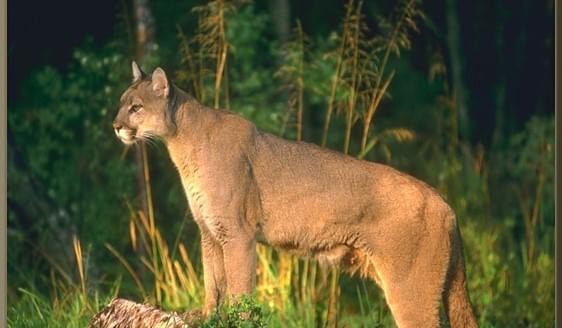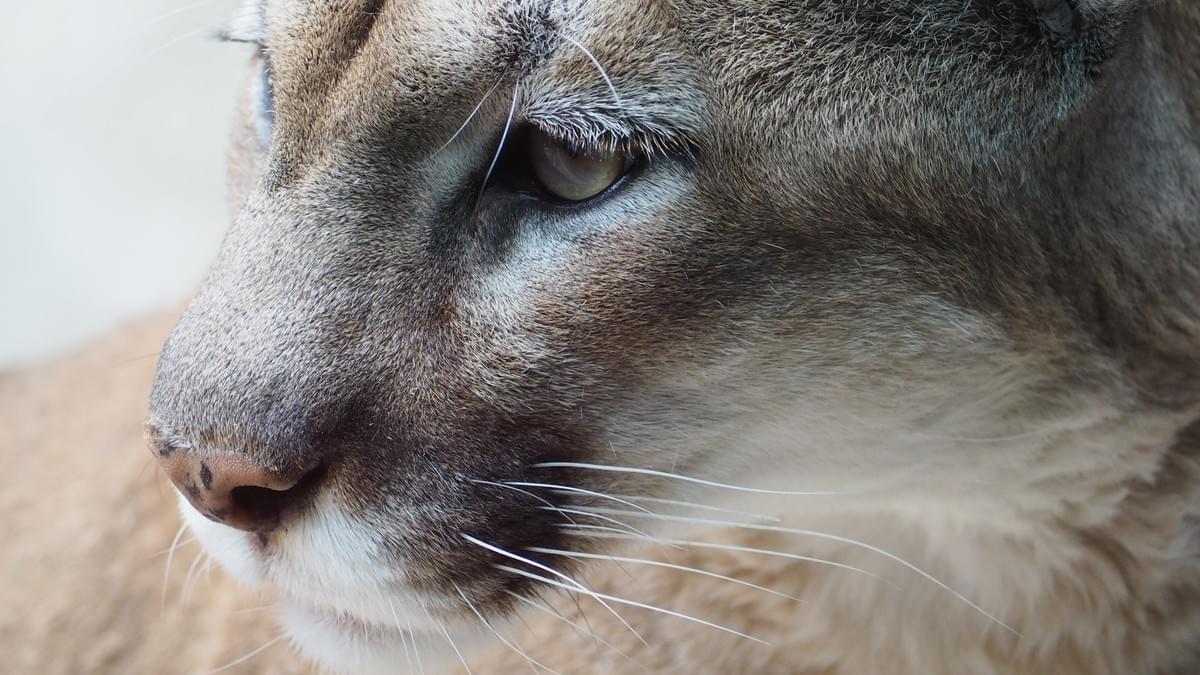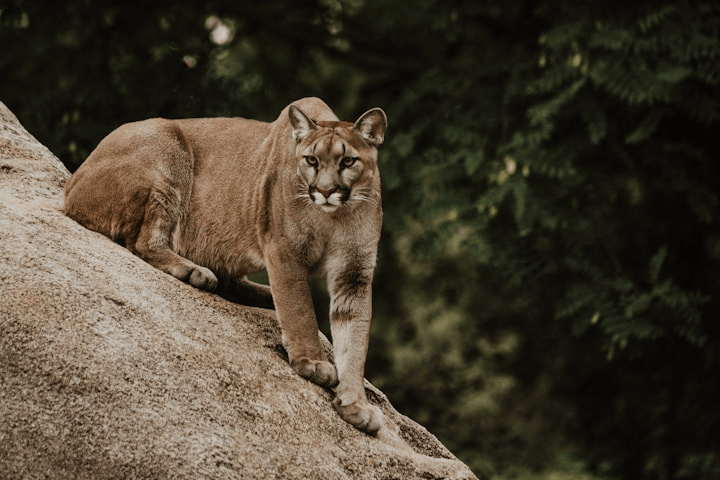
Humans and Cougars
Research has consistently concluded that hunting mountain lions increases conflicts with humans.

Humans can coexist peacefully with mountain lions.
It is unlikely you will see a mountain lion in your lifetime, but they have undoubtedly seen you. Mountain lions avoid humans and will abandon a carcass at the sound of a human voice. In fact, since 1870, there have only been 28 fatal mountain lion attacks on humans in North America. Actvities such as jogging and biking increase the risk of an attack because these motions resemble running animals and can trigger a lion's instinctive prey drive.
If you encounter a mountain lion, do not run. Pick up any children or animals without turning your back. Make yourself as big and loud as posssible.The lion will likely retreat. Think carefully before reporting the encounter to authorities or feeding hysteria on social media.Other safety measures include installing lighting on property where mountain lions may wander, keeping pets inside at night, and investing in livestock guardian dogs to protect cattle and other animals.

Humans benefit from the presence of mountain lions.
Mountain lions are considered a "keystone species," meaning that their activities support vital functions of the natural world, such as balancing the water table by reducing the amount of time deer spend at water sources.
Almost 500 species benefit from the mountain lion's kill sites. Mountain lions keep Blacklegged Tick numbers down by regulating deer population, thereby reducing Lyme disease infections in humans. The regulation of the deer population also prevents over-grazing and a resulting food shortage. Mountain lions prevent automobile accidents by reducing the numbers of animals that are involved in wildlife-human highway collisions. Recent research has found that mountain lions target the diseased deer in a herd, thereby keeping herds healthy. Mountain lions also help seed new growth of plant life through the distribution of the seeds contained in their scat.

Killing mountain lions contributes to the disruption of our entire ecosystem.
Over the last three decades, 80,000 mountain lions have been killed for trophies, most of them from the western and midwestern United States. Oregon allows unusually high levels of trophy hunting, more than twice what experts recommend, and there has been an increase in human-cougar conflicts in communities.
Mountain lions serve critical ecological roles and increase the biodiversity in their natural habitats. Killing mountain lions benefits no one other than a handful of trophy hunters looking to display body parts in their living rooms. States can make policies that protect rather than persecute mountain lions. In 2024, Colorado voters narrowly rejected a law that would outlaw hunting of bobcats and cougars. Read more about the ongoing campaign in Colorado at catsarenttrophies.org.
The Mother Lion Alliance is a tax-deductible non-profit organization under Section 501(c)(3) of the IRS code.
Federal I.D. EIN # 99-1231184.




